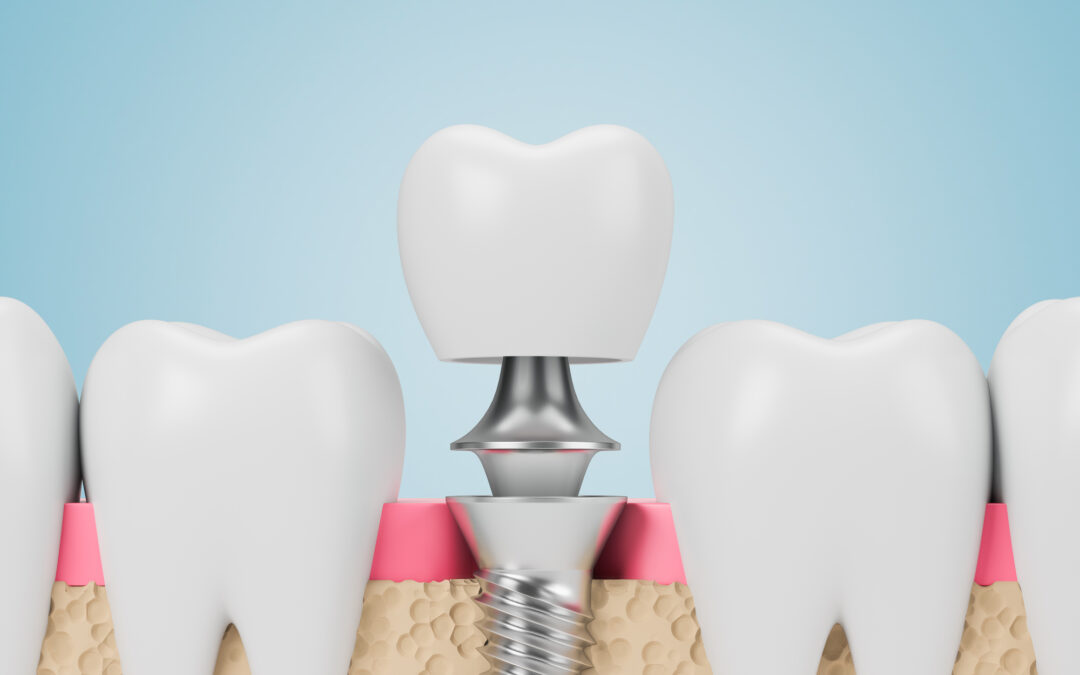Dental implants have revolutionized the field of dentistry, offering patients a reliable, long-term solution for missing teeth. As technology continues to advance, the future of dental implants promises to bring even more innovations that will enhance the efficiency, durability, and accessibility of this crucial dental treatment. Among the key areas of focus are improvements in tooth implants and the growing popularity of full arch implants. These innovations are set to redefine the standards of dental care, offering better outcomes and more personalized treatments for patients worldwide.
The Evolution of Dental Implants
The concept of dental implants is not new; it dates back to ancient civilizations, where attempts were made to replace missing teeth with shells, stones, and other materials. However, it wasn’t until the 20th century that modern dental implants became a viable option. The introduction of titanium as a biocompatible material in the 1960s marked a significant breakthrough, enabling the development of implants that could fuse with bone through a process known as osseointegration.
Today, tooth implants are a common procedure, with millions of implants being placed annually. These implants consist of a titanium screw that is inserted into the jawbone, serving as an artificial root. A crown is then attached to the implant, creating a natural-looking and functional tooth replacement. Despite their success, the field of dental implants continues to evolve, with new technologies and materials being developed to improve the patient experience and long-term success rates.
Innovations in Dental Implant Technology
One of the most exciting developments in the field of dental implants is the use of digital technology. Computer-aided design and manufacturing (CAD/CAM) have transformed the way implants are planned and placed. Dentists can now use 3D imaging and virtual modeling to create highly accurate treatment plans, ensuring precise placement of the implant. This reduces the risk of complications and improves the overall success rate of the procedure.
Another area of innovation is the development of new materials for tooth implants. While titanium remains the gold standard, research is being conducted into alternative materials that may offer even better biocompatibility and aesthetic results. For example, zirconia implants are gaining popularity due to their tooth-colored appearance and potential to reduce the risk of peri-implantitis, a condition that can lead to implant failure.
Nanotechnology is also making its mark on dental implants. By manipulating materials at the molecular level, researchers are developing implants with enhanced surface properties that promote faster osseointegration. This could lead to shorter healing times and improved outcomes for patients.
The Rise of Full Arch Implants
In addition to single-tooth implants, there has been a growing interest in full arch implants. This procedure involves the placement of multiple implants to support a full arch of prosthetic teeth. Full arch implants are particularly beneficial for patients who have lost all or most of their teeth and want a stable, long-lasting alternative to dentures.
The All-on-4 technique is one of the most well-known approaches to full arch implants. It involves placing four implants in the jaw, two of which are angled to maximize contact with the bone. This allows for a full arch of teeth to be supported without the need for bone grafting, making the procedure faster and more accessible for patients with varying bone densities.
As technology advances, the process of placing full arch implants is becoming more streamlined. Digital planning tools allow for precise placement, and prefabricated prosthetic arches can be attached to the implants on the same day as surgery. This “teeth-in-a-day” approach significantly reduces the time patients spend without teeth, improving their quality of life during the treatment process.
The Role of Regenerative Medicine in Dental Implants
One of the most promising areas of research in dental implants is the use of regenerative medicine. Scientists are exploring the potential of stem cells and growth factors to enhance bone regeneration around implants. This could be particularly beneficial for patients with insufficient bone density, who currently require bone grafting before receiving implants.
By harnessing the body’s natural healing processes, regenerative medicine could lead to less invasive procedures and faster recovery times. It also opens the door to the possibility of growing new teeth in the future, which could ultimately replace the need for implants altogether.
The Future Outlook
As we look to the future, it’s clear that the field of dental implants will continue to evolve. Advances in digital technology, materials science, and regenerative medicine are set to redefine the way we approach tooth restoration. Tooth implants will become even more reliable and aesthetically pleasing, while full arch implants will offer a superior solution for patients with extensive tooth loss.
Furthermore, the integration of artificial intelligence (AI) into dental practices will enhance the accuracy of implant placement and treatment planning. AI algorithms can analyze vast amounts of data to predict outcomes and tailor treatments to individual patients, leading to more personalized care and better long-term results.
The future of dental implants is bright, with ongoing innovations poised to improve patient outcomes and make these procedures more accessible to a wider population. Whether it’s through advancements in tooth implants or the continued rise of full arch implants, patients can look forward to a future where dental implants offer not just a solution to missing teeth, but a gateway to enhanced oral health and well-being.



